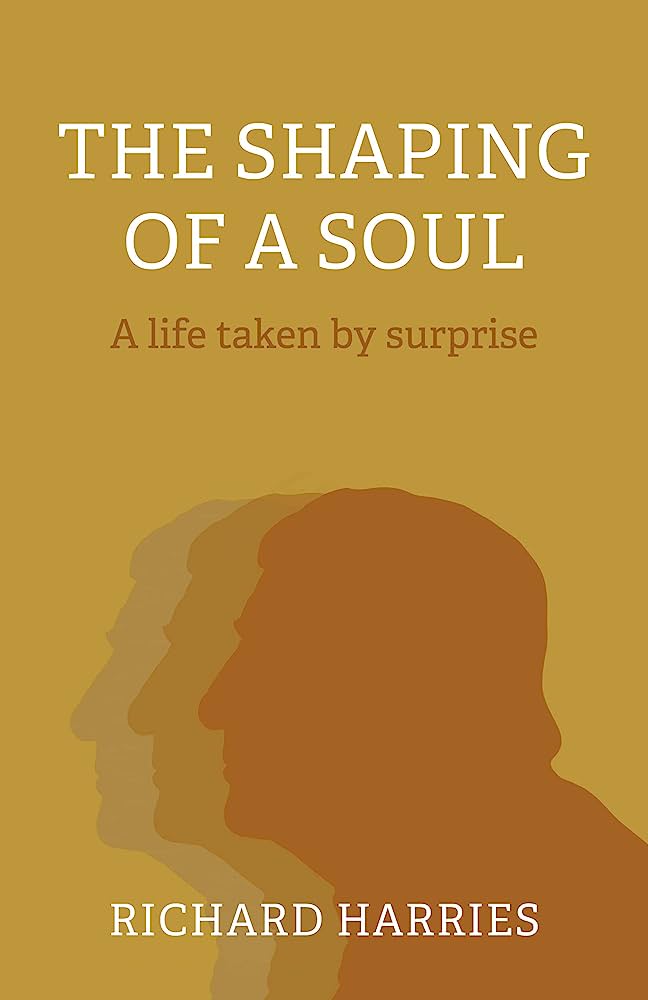The Shaping of a Soul: A life taken by surprise
Richard Harries
John Hunt Publishing £18.99
(9781803411620)
I have read and now write about a man and his story from a privileged position. I worked with Richard as his first domestic chaplain from 1987 to 1990 and now my life is enriched beyond measure by our friendship. He is the most significant of steadfast encouragers.
You might ask why anyone would want to read about a former Bishop belonging to an era of the Church of England which seems, on the face of it, to be slowly slipping away. There is in all memoirs a complex relationship between the lineage, the life, the context, and perceptions about legacy. At a time when too much of our living and loving are played out on the surface, we rush too quickly to capture a judgement through the limited (and sometimes distorted ) medium of social media. There can be in this process some revelation about our own insecurities and jealousies as we are quick to dismiss or even condemn.
There are three reasons why I invite you to consider reading this.
First for the quality of its prose. The hinterland of Richards love of literature and poetry shape the texture and quality of the way he articulates time. Over 25 chapters you will discover the gift of not taking yourself too seriously. With careful attentiveness the shape and influences of his life are described with a lightness of touch, but which often, take us into the heart of the matter. Richard combines clarity with liminal writing that takes the reader over the threshold and into new places of understanding and wisdom. Like most autobiography the delicate interweaving of history, time, relationships, passions, and reflection opens new horizons of how we understand our own lives.
The second reason is simply this – it is interesting! Richard is aware of the advantages of his birth, family, education, and the privileges of ministry in Hampstead, Wells, Fulham, Kings London, and Oxford. Sustained in all this by his wonderful wife Jo together with the gift of children and grandchildren Richard articulates with graciousness and gratitude how people and places have surprised him. He shows his reader how place, people, poetry, art and a deeper intellectual well of writers and thinkers have stimulated, challenged, and informed his journey. Surprise is the cantus firmus of this prose. Age so often can bestow the gift of realism. For some this easily slips into cynicism, but not for Richard, where generosity and good judgement are present throughout the mapping of his life.
I was particularly interested to read his reflections on the case he took to court concerning the Church Commissioners and ethical investment especially in South Africa. It would be easy to underestimate the bravery and fortitude with which this piece of direct action was formed and delivered. Some will also be interested to read about the details of Jeffrey John’s nomination to the bishopric of Reading. Richard combines confidence with humanity. He is honest about both frustration and failure but gifted in the ability to move on.
The third reason is it that this memoir ‘models’ a distinctive approach to Christian apologetics. It is outward facing, focused on truth and alive to the gift of faith and its shape in private and public life. Much of this has found expression in his regular contributions to thought for the day. The skill with which these pieces are crafted is evident. They may be a major part of his legacy. He shows the listener what truth looks and feels like within the context of the Christian faith. As society negotiates its way into secularism and scepticism Richard refuses to give way to any ‘accommodation’ by going into the heart of the matter. He remains steadfast and resolute in the faith that has captivated him.
The final pages which are a meditation on death and resurrection are deeply moving. Next the last words of this review be his:
‘To let go into death in an act of trust and a spirit of hope – with everything to look forward to… God has the power still to surprise us.’ (pp 228-9)


